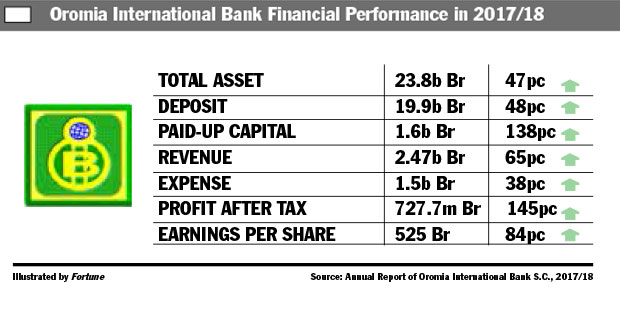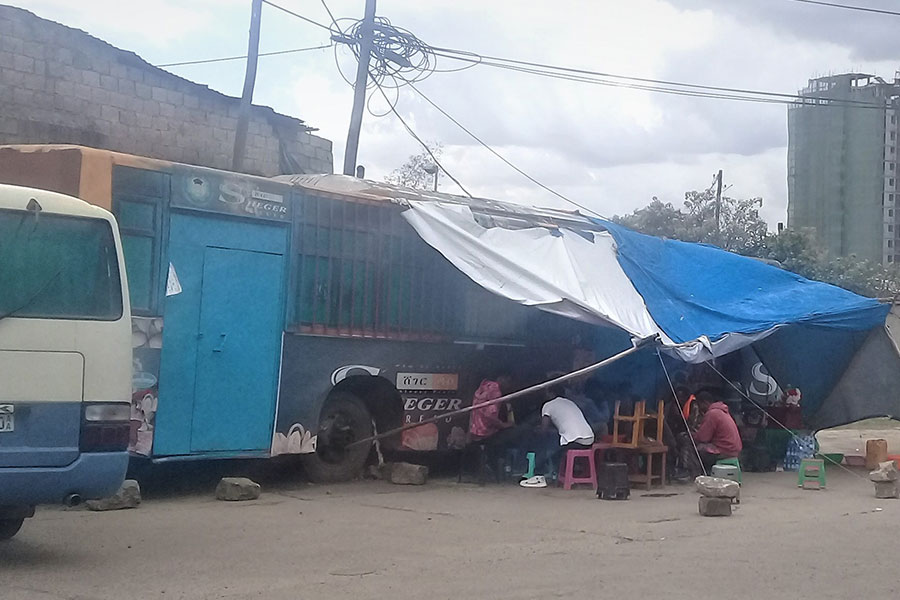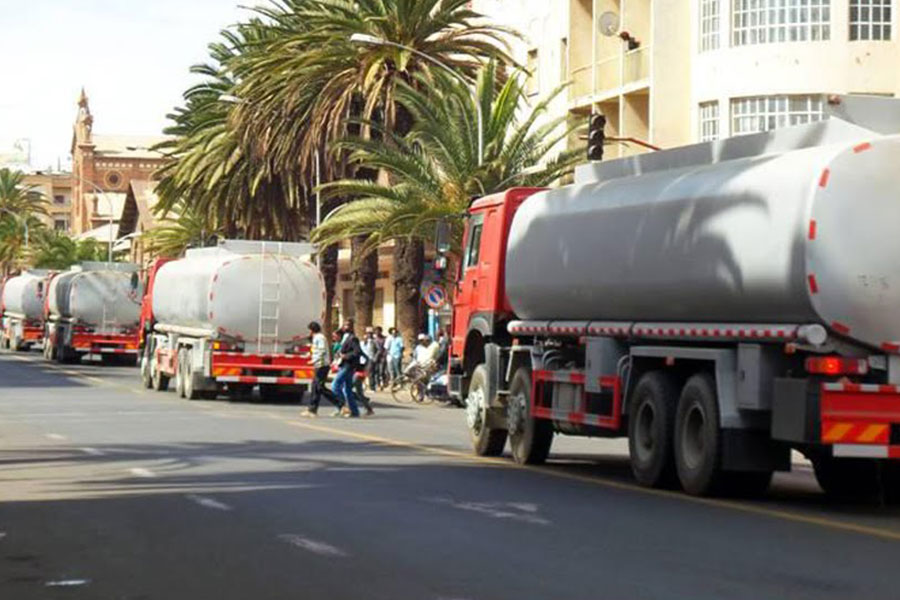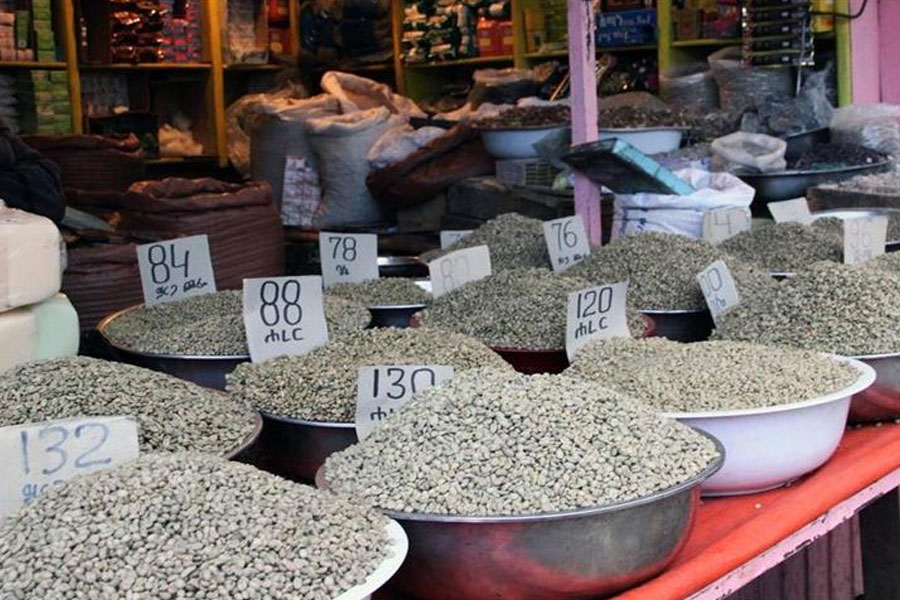
Editorial | Jun 28,2025
Coffee exporters collecting their beans from farms in the Oromia Regional State are subjected to a new tax imposed by municipalities and weredas in the region.
Experts from the Oromia Revenues Bureau and the region’s Urban Planning Institute jointly conducted a study to determine the type of services municipalities provide and the amount of taxes they could collect. Sample cities were selected to implement the study over six towns status. The Institute sets tax brackets for services after the assessment allowing towns to prepare their own regulations. Getachew Nega, director for infrastructure and municipal revenues improvement at the Institute, confirmed his office provided the revised model.
However, the municipalities of towns in the regional state approved directives three months ago, imposing between two Birr and five Birr tax for every kilogram of coffee leaving the region.
The surcharge on coffee products is collected as a service tax for the municipalities and wereda offices of over seven towns.
Jimma city, 352Km west of the capital, charges exporters three Birr for a kilo. The city incorporated coffee into the list of services it provided two months ago. Exporters mainly charged for their exchanges through the Ethiopian Commodity Exchange (ECX) and transportation.
“Their trucks will be parked for up to two days,” said Seifu Kemal, general manager of Jimma Revenues Office.
The city charged 25 Br for a quintal last year and collected eight million Birr.
This is the first time a regional authority levying additional tax on a commodity which generates the largest export revenues for the country.
Ethiopia exported over 280,000tns of coffee last year, generating a record of 1.4 million dollars. More than 65pc of this volume was sourced from the Oromia region. Coffee grows mainly in the country’s southwestern part, with prominent areas being Yirgacheffe, Sidamo, Kaffa, Harrar, Jimma, and Limu. Close to 4,000 farmers grow coffee in Oromia state.
“The taxes collected by the government are too small,” said Lemessa Ayele, deputy director of the Oromia Revenues Bureau.
He believes the newly instituted surcharge will also make the export system accountable.
Exporters do not feel the same way. Industry players complain that the newly introduced tax discourages exporters in the sector. It makes exporters less competitive in the international market as they sell through negotiations, which pushes them out as their prices go up. Commercial coffee products are sold based on prices in the New York market, except for grade one and speciality coffees.
A third-generation family-owned business, Nardos Coffee Export Plc, has been in business since 1998, exporting to Asia, Europe and US markets. It had a coffee farm in the Borena Zone of the Oromia Regional State. The company collects coffee products from the ECX and regional cities where coffee is produced through vertical integration.
The past two years have been unusually challenging for the coffee industry, besieged by rises in interest rates, shipment costs, and taxes. The shutdown following the global pandemic has also affected the industry. The international price will increase as exporters do not want to undersell the product following the local price increase. This makes buyers look for other markets with lower prices, terminating their contracts.
Last year, the company exported 140 containers generating over eight million dollars. A container holds an average of 19,200kg of coffee.
“The quality of the coffee is deteriorating,” said Feyisa.
Addis Shewalem from Sabekame Coffee Export Plc echoed Feyisa concerns.
“The added tax puts pressure on us,” he told Fortune. “We can only stay in business, increasing our prices for the international market. I do not think we will survive.”
“Exporters will either undersell or drop out of the business,” said Feyisa, export director.
Following the complaints from exporters, the Ethiopian Coffee & Tea Authority raised the issue with town heads in the region.
“We’ll disclose the result soon,” said Shafi Omer, deputy head.
Gizat Worku, a coffee exporter and general manager of the Ethiopian Coffee Exporters Association, a lobby group representing 630 exporters, warned that the decision must be revised and the government needs to take things smoothly if it wants to generate foreign currency.
“It’ll impact the farmers,” said Gizat.
However, regional revenue officials, such as Lemessa, believe that the tariff is not high, and unlikely to affect the export industry.
“Many are complying,” Lemessa told Fortune.
PUBLISHED ON
Nov 05,2022 [ VOL
23 , NO
1175]

Editorial | Jun 28,2025

Fortune News | Nov 14,2020

Fortune News | Jul 03,2024

Radar | Apr 30,2022

Fortune News | Oct 16,2021

Fortune News | Jan 22,2022

Fortune News | Jun 20,2020

Fortune News | Apr 17,2020

Fortune News | Jul 18,2021

Radar | Jan 22,2022

Dec 22 , 2024 . By TIZITA SHEWAFERAW
Charged with transforming colossal state-owned enterprises into modern and competitiv...

Aug 18 , 2024 . By AKSAH ITALO
Although predictable Yonas Zerihun's job in the ride-hailing service is not immune to...

Jul 28 , 2024 . By TIZITA SHEWAFERAW
Unhabitual, perhaps too many, Samuel Gebreyohannes, 38, used to occasionally enjoy a couple of beers at breakfast. However, he recently swit...

Jul 13 , 2024 . By AKSAH ITALO
Investors who rely on tractors, trucks, and field vehicles for commuting, transporting commodities, and f...

Oct 18 , 2025
The political establishment, notably the ruling party and its top brass, has become p...

Oct 11 , 2025
Ladislas Farago, a roving Associated Press (AP) correspondent, arrived in Ethiopia in...

Oct 4 , 2025
Eyob Tekalegn (PhD) had been in the Governor's chair for only weeks when, on Septembe...

Sep 27 , 2025
Four years into an experiment with “shock therapy” in education, the national moo...